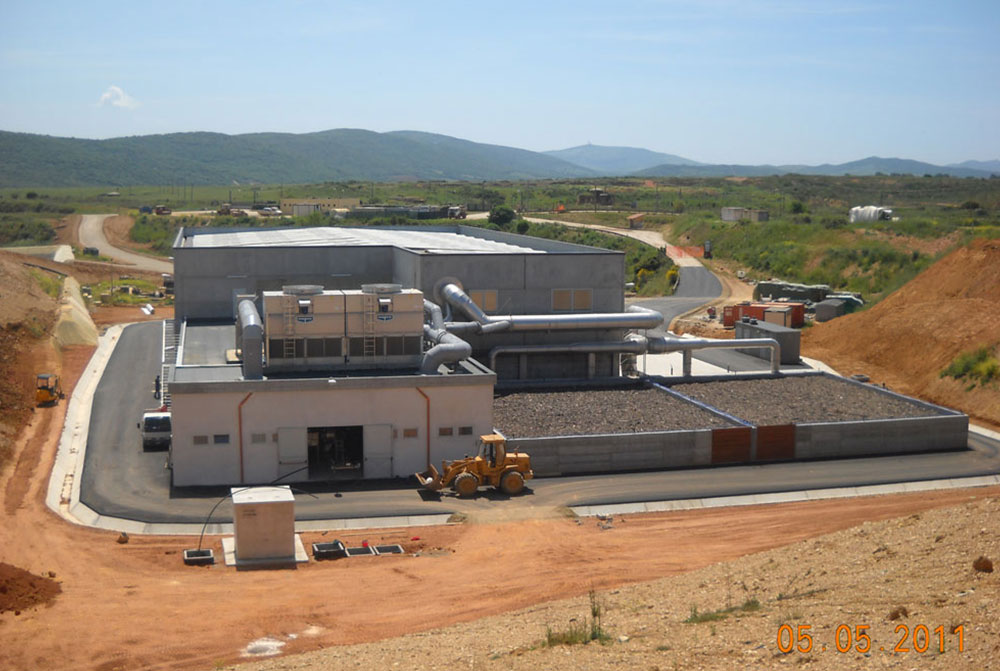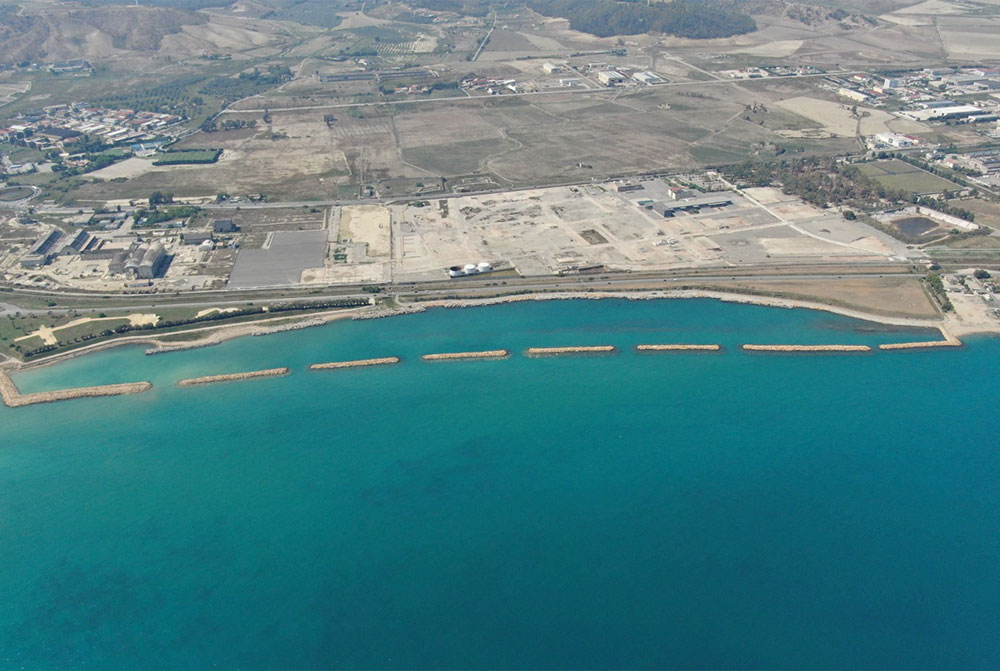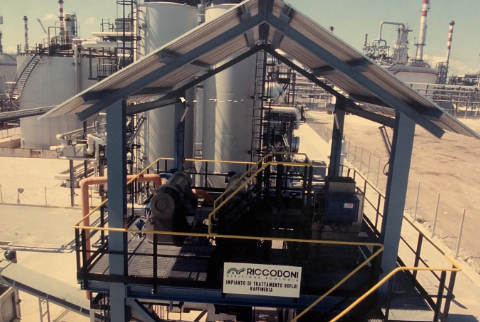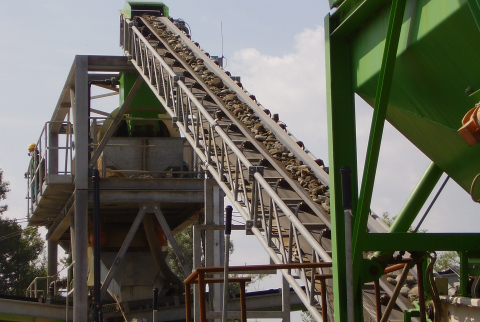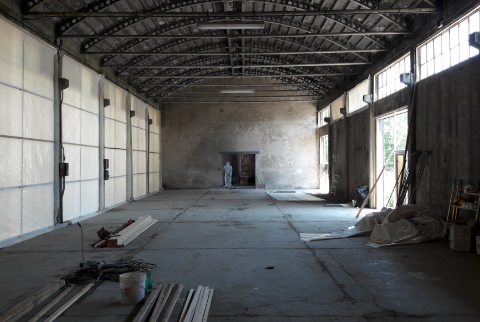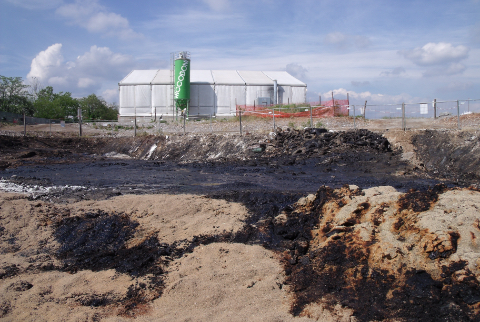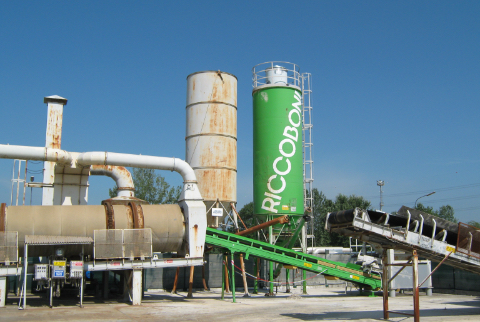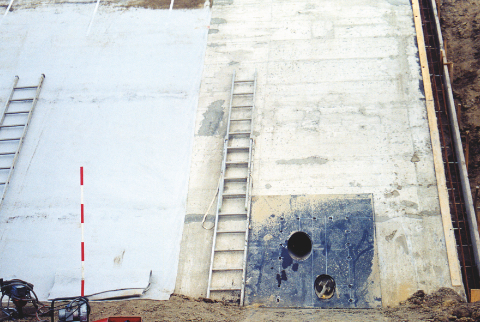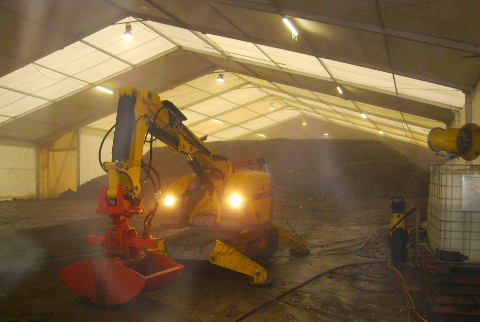The term I.P.P.C. facility denotes an industrial or production facility consisting of one or more plants/systems located on the same site, where, in accordance with the principles of integrated management, the managing entity conducts one or more activities whose purpose is to reduce the environmental impacts of the facility’s industrial emissions using a combination of technical solutions (involving plant engineering, management and control).
The I.P.P.C. facility in Scala Erre consists of: a plant for the pre-sorting and biostabilisation of municipal waste, a plant for high quality composting, and a sanitary landfill for non-hazardous municipal waste and other similar waste types.
The pre-sorting and biostabilisation plant is approved to treat 73,200 tons per year of mixed municipal waste and, in summary, consists of the following elements:
- crusher,
- iron recovery system,
- screening system,
- oil-hydraulic press,
- biocells for controlled biostabilisation,
- aeration system,
- biofilters.
Waste exits the plant in three separate flows, which can be disposed of in the adjacent waste disposal site:
- biostabilised fine particles,
- oversize particles (mixed materials resulting from the mechanical treatment),
- waste separated out by the iron recovery system.
The high quality compost plant is approved to treat 12,000 tons per year of biodegradable waste produced by canteens, kitchens and food markets, in addition to 5,000 tons per year of biodegradable waste resulting from mowing and pruning in parks and gardens.
In summary, the plant consists of the following elements:
- crusher,
- biocells for controlled biostabilisation,
- spigot floors,
- screening system,
- aeration system,
- biofilters.
This process produces three types of materials:
- mature compost, or high quality compost;
- medium or very coarse oversized particles, which will be put back into the manufacturing process for use as structural material;
- lightweight particles, consisting mainly of plastics or other lightweight materials, which are sent for disposal.
Finally, the mature compost is stored on a suitable and approved outdoor service awaiting sale or use for the purposes permitted by the law in force.
Management of the I.P.P.C. facility involved the following services:
- technical and administrative responsibility for the I.P.P.C. facility, which consists of the sanitary landfill for municipal waste, the pre-sorting and biostabilisation plant, and the composting plant;
- management of the personnel assigned to the plants listed above;
- planning and management of regularly scheduled and emergency maintenance services in the I.P.P.C. facility;
- collection, transportation and sending for disposal of the leachate from the disposal site and of the water used during processes at the pre-sorting and compost plants;
- management of relations with regulating bodies and authorities;
- conducting analyses on the various environmental matrices in accordance with the instructions and the timetable laid down in the Monitoring and Control Plan, which is an integral part of the I.P.P.C. facility's A.I.A. (Integrated Environmental Permit).


